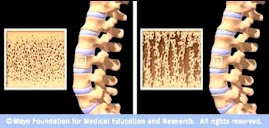“Many people think that taking a daily cocktail of vitamins,
minerals, antioxidants
and other supplements
is a prescription for a healthy diet. But it's also likely that they don’t know
whether the nutrients
they're taking are fat soluble, water soluble, or if they are getting more of
some nutrients
than they need.”
“Vitamins are classified as either
fat soluble (vitamins A, D, E and K) or water soluble (vitamins B and C). This
difference between the two groups is very important. It determines how each
vitamin acts within the body.”
“The fat soluble vitamins are
soluble in lipids (fats). These vitamins are usually absorbed in fat globules
(called chylomicrons) that travel through the lymphatic system of the small
intestines and into the general blood circulation within the body. These fat
soluble vitamins, especially vitamins A and E, are then stored in body tissues.”
“Fat soluble vitamins, once they
have been stored in tissues in the body, tend to remain there. This means that
if a person takes in too much of a fat soluble vitamin, over time they can have
too much of that vitamin present in their body, a potentially dangerous
condition called hypervitaminosis (literally, too much vitamin in the body).”
“Persons can be also be deficient in
the fat soluble vitamins if their fat intake is too low or if their fat
absorption is compromised, for example, by certain drugs (that interfere with
the absorption of fat from the intestine) or by certain diseases such as cystic
fibrosis (in which there is a deficiency of enzymes from the pancreas which
similarly interferes with the absorption of fat from the intestine).”
“There is a big difference between the water
soluble vitamins and the fat soluble vitamins and this is absolutely a critical
distinction.”
Fat-Soluble Vitamins: A, D, E, and K
“Quick
Facts...”
- “Small amounts of vitamin A, vitamin D, vitamin E and vitamin K are needed to maintain good health.”
- “Fat-soluble vitamins will not be lost when the foods that contain them are cooked.”
- “The body does not need these vitamins every day and stores them in the liver and adipose (fat) tissue when not used.”
- “Most people do not need vitamin supplements.” (This is debatable, and I don’t agree, but I do want to admonish people to respect the upper intake limits for all vitamins, especially the fat soluble ones, and for minerals, such as calcium and magnesium.)
- “Megadoses of vitamins A, D, E or K can be toxic and lead to health problems.”
- “Requirements for vitamins may be expressed in different mathematical units. Close attention should be paid to ensure that similar units are being compared.”
http://www.ext.colostate.edu/pubs/foodnut/09315.html
Water-Soluble Vitamins and Nutrients
“Water-soluble nutrients work best when you get them in the proper amounts. When you eat or take more than your body needs, the body adapts by absorbing just what it needs, and then it usually excretes the excess in your urine -- but not always. A study in the August 2010 Journal of Nutrition Science and Vitaminology found that urinary excretion of certain vitamins and other nutrients was reduced when study participants fasted.”“The field of nutrition is ever-changing, and experts used to think that taking excess amounts of a water-soluble nutrient was harmless because the excesses would just be eliminated in urine. Today, we know that’s not the case, and that some water-soluble vitamins and nutrients are handled differently by the body than others.”
“Just because most water-soluble vitamins are not stored by the body, you can’t assume that it is safe or effective to take more than the safe upper limit. In addition, you need to account for the vitamins and nutrients you get from the food you eat, says Ruth Frenchman, MS, RD, a spokesperson for the American Dietetic Association.”
"Certain water-soluble vitamins in excess can cause problems, such as too much vitamin B6 can cause nerve problems, too much niacin can cause flushing, and excess vitamin C can cause kidney stones," Frenchman observes. Excess folic acid may also mask a vitamin B12 deficiency, which is more common in people over age 50.”
http://www.webmd.com/vitamins-and-supplements/nutrition-vitamins-11/fat-water-nutrient?page=2



No comments:
Post a Comment